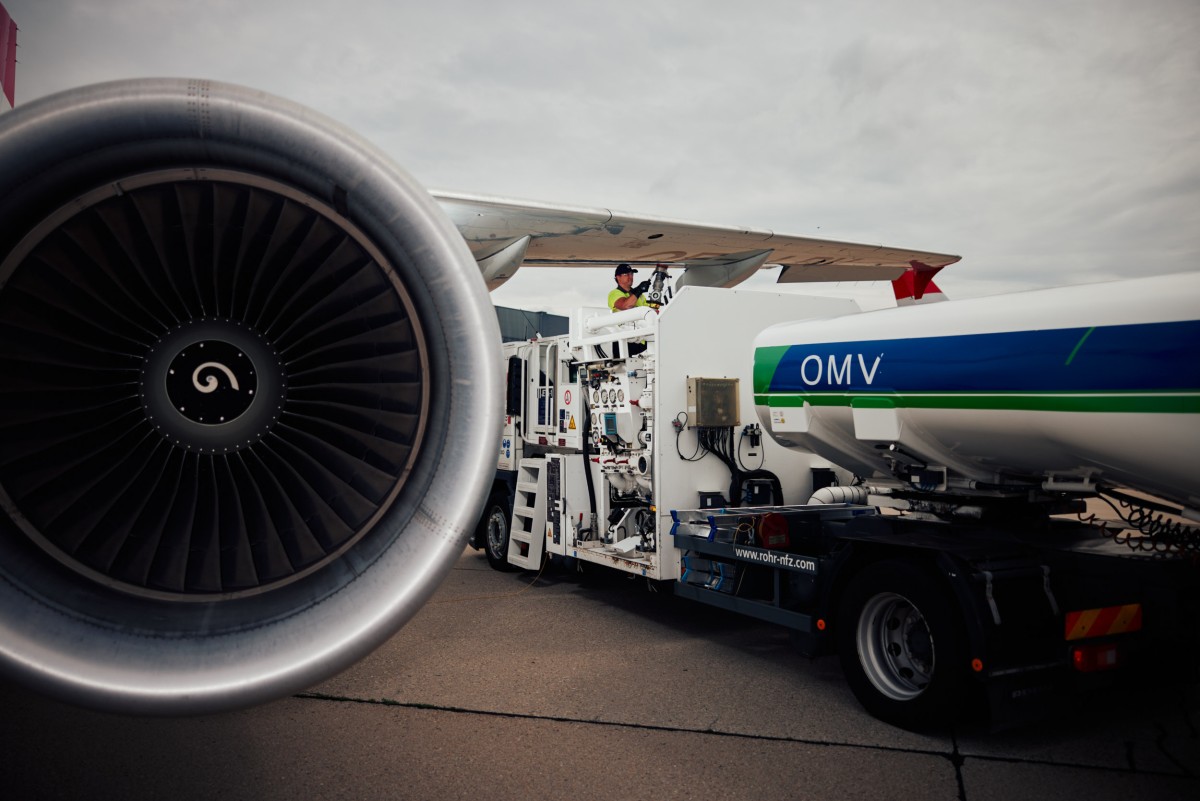Sponsored Content
Lufthansa and OMV Cooperate Over Sustainable Aviation Fuel
OMV, the international integrated oil, gas and chemical company headquartered in Vienna, and Lufthansa Group are expanding a partnership on sustainable aviation fuels. Germany's Lufthansa plans to stock up on sustainable aviation fuel (SAF) from OMV in the future.
 OMV has already been supplying initial quantities of SAF to the Lufthansa Group airline Austrian Airlines at Vienna Airport since March 2022. / Picture: © OMV/Andreas Jakwerth - redaktionelle Verwendung honorarfrei
OMV has already been supplying initial quantities of SAF to the Lufthansa Group airline Austrian Airlines at Vienna Airport since March 2022. / Picture: © OMV/Andreas Jakwerth - redaktionelle Verwendung honorarfrei
Both companies have signed a memorandum of understanding of more than 800,000 tons of SAF for the years 2023 to 2030, they said in their respective releases.
The two companies intend to expand their existing partnership and extend it to include new sites for SAF production and offtake as well as new technologies.
With the expansion of the cooperation, the Lufthansa Group…
or Log In
Fast News Search





